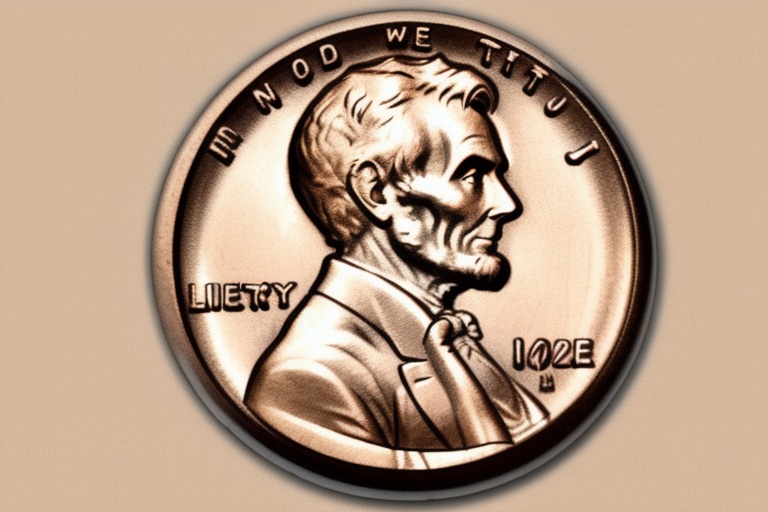Discovering a valuable rare coin within an old collection or a casual find can be thrilling for both the novice and the seasoned collector. The potential significance of such a coin extends beyond financial value; it embodies a tangible piece of history, art, and culture. For collectors, it represents a link to the past and an addition to a cherished collection. For those seeking monetary gain, it could equate to a significant financial profit. The following guide will offer expert advice on the appropriate steps to take upon finding a rare coin, the importance of preservation, and the ins and outs of the coin selling process.
Discovering a valuable rare coin within an old collection or a casual find can be thrilling for both the novice and the seasoned collector. The potential significance of such a coin extends beyond financial value; it embodies a tangible piece of history, art, and culture. For collectors, it represents a link to the past and an addition to a cherished collection. For those seeking monetary gain, it could equate to a significant financial profit. The following guide will offer expert advice on the appropriate steps to take upon finding a rare coin, the importance of preservation, and the ins and outs of the coin selling process.
Authentication and Initial Handling
The priority upon finding a potentially valuable rare coin is to verify its authenticity. Given the intricacies of numismatics, various factors contribute to a coin's rarity and worth, such as its minting details, historical context, and condition. Handling the coin correctly from the start is imperative. Always hold the coin by its edges, using gloves if possible, to prevent oils and dirt from your hands contaminating its surface. The edges are the least obtrusive part of the coin and less likely to sustain damage from contact.
To Clean or Not to Clean?
Resist the temptation to clean the coin. Cleaning or polishing can greatly diminish a coin's value, stripping away the patina that many collectors value as part of the coin’s authenticity and allure. If you're uncertain how to proceed, it's best to leave the coin untouched and consult with professionals.
Storage and Preservation
Select appropriate storage to safeguard the coin. Utilize protective holders or sleeves that are constructed from archival-quality materials to defend against environmental damages like moisture, which can accelerate deterioration. Correct storage solutions ensure the coin's state remains as untouched as possible, preserving its value.
Understanding the Coin's Worth
For collectors, the next step is to pursue professional grading, which can provide a definitive assessment of the coin's condition. Reputable grading services evaluate and encapsulate coins, assigning them a grade that becomes a key determinant of their market value. A high-grade coin from such services might command a premium among collectors.
Engage in a meticulous research process to unearth all possible information pertaining to the coin. Consult established coin catalogs, authoritative numismatic websites, and comprehensive reference books. This data becomes pivotal in understanding the broader context and specific attributes that could influence the coin's rarity and appeal.
Consider reaching out to expert appraisers or established coin dealers for a professional opinion. Numismatic experts can offer indispensable insights into a coin's grade, potential market worth, and overall desirability amongst collectors. Visiting local coin shops or coin shows can be particularly fruitful, as they present opportunities to meet a community of knowledgeable professionals and enthusiasts.
Selling a Valuable Rare Coin
Should you choose to sell a rare coin, comprehending the nuances of the coin market becomes critical. Before proceeding with a sale, research to find a reputable dealer, auction house, or online platform that aligns with your expectations and ethical considerations. These entities differ greatly in their fee structures, commission rates, and sales processes. Having a clear understanding of these variables will empower you to make an educated decision that protects your interests and your coin's value.
Moreover, consider the taxation implications of selling a valuable coin. Tax laws may affect the proceeds of your sale, and it's wise to consult a tax advisor to understand your liabilities and to plan accordingly.
The Emotional Connection
Many coin collectors regard their holdings as much more than mere investments. Coins can embody personal memories, historic epochs, or artistic awe. Those who find joy in collecting are encouraged to integrate their newfound treasures into their collections, preserving them for future generations to enjoy. For such individuals, the emotional connection and satisfaction derived from the hobby are often priceless.
In Summary
Whether keeping or selling, remember that a rare coin is part of a finite legacy. Such discoveries are not only thrilling but also bear the responsibility of guardianship. By carefully evaluating how to handle, preserve, and potentially sell your found treasure, you honor the heritage each coin represents. As a coin enthusiast or a professional dealer, your actions ensure that these small fragments of history are preserved for years to come, retaining their intrinsic and monetary value for the appreciation of future collectors.
Information for this article was gathered from the following source.




